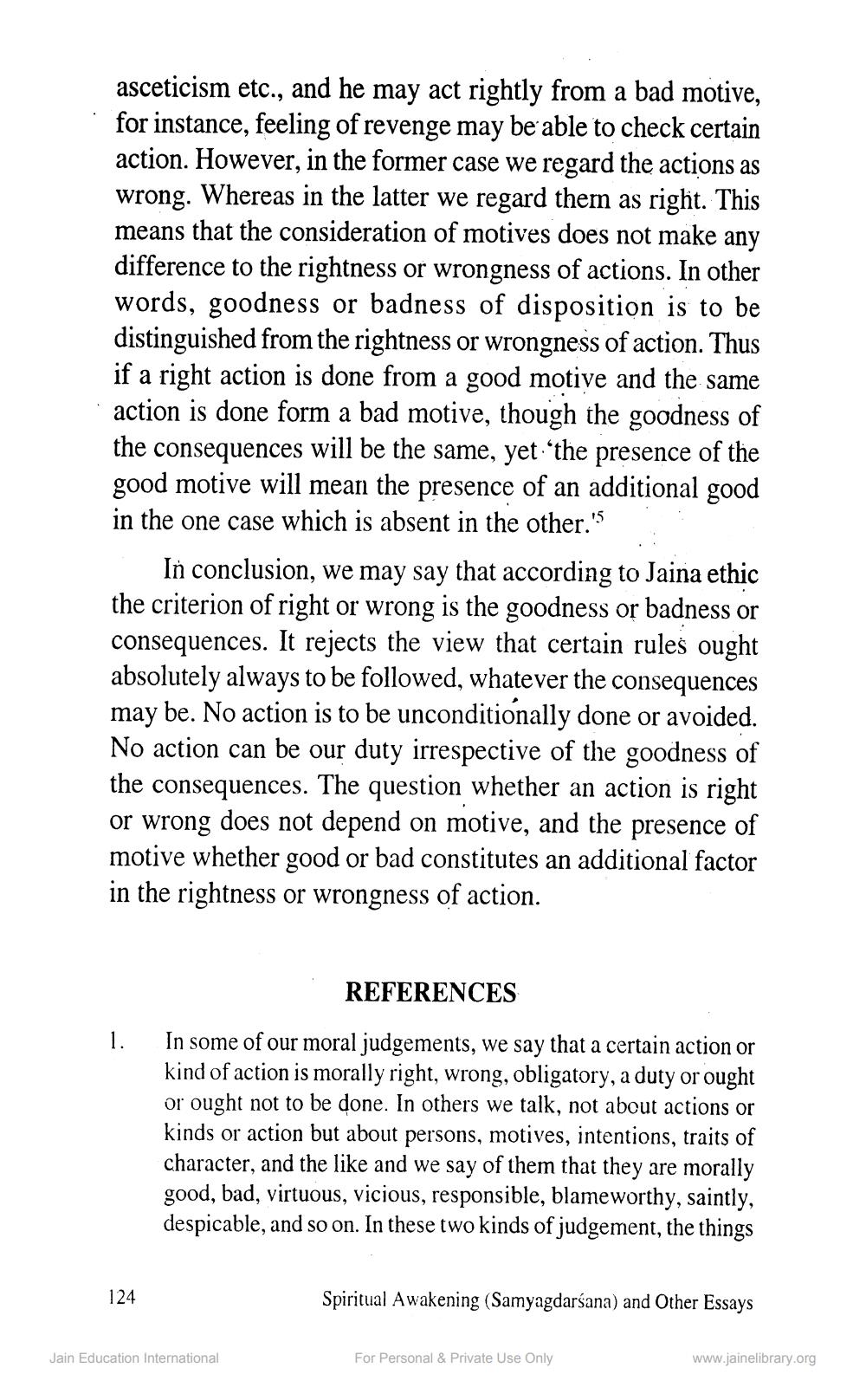________________
asceticism etc., and he may act rightly from a bad motive, for instance, feeling of revenge may be able to check certain action. However, in the former case we regard the actions as wrong. Whereas in the latter we regard them as right. This means that the consideration of motives does not make any difference to the rightness or wrongness of actions. In other words, goodness or badness of disposition is to be distinguished from the rightness or wrongness of action. Thus if a right action is done from a good motive and the same action is done form a bad motive, though the goodness of the consequences will be the same, yet the presence of the good motive will mean the presence of an additional good in the one case which is absent in the other.'5
In conclusion, we may say that according to Jaina ethic the criterion of right or wrong is the goodness or badness or consequences. It rejects the view that certain rules ought absolutely always to be followed, whatever the consequences may be. No action is to be unconditionally done or avoided. No action can be our duty irrespective of the goodness of the consequences. The question whether an action is right or wrong does not depend on motive, and the presence of motive whether good or bad constitutes an additional factor in the rightness or wrongness of action.
1.
124
REFERENCES
In some of our moral judgements, we say that a certain action or kind of action is morally right, wrong, obligatory, a duty or ought or ought not to be done. In others we talk, not about actions or kinds or action but about persons, motives, intentions, traits of character, and the like and we say of them that they are morally good, bad, virtuous, vicious, responsible, blameworthy, saintly, despicable, and so on. In these two kinds of judgement, the things
Jain Education International
Spiritual Awakening (Samyagdarśana) and Other Essays
For Personal & Private Use Only
www.jainelibrary.org




